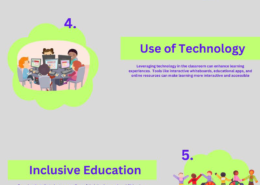AI can significantly enhance decision-making processes in healthcare by providing accurate diagnostics, personalized treatment plans, and efficient administrative operations. Accurate Diagnostics: AI algorithms can analyze medical images (e.g., X-rays, MRIs) to detect diseases such as cancer with hiRead more
AI can significantly enhance decision-making processes in healthcare by providing accurate diagnostics, personalized treatment plans, and efficient administrative operations.
- Accurate Diagnostics: AI algorithms can analyze medical images (e.g., X-rays, MRIs) to detect diseases such as cancer with high precision. Natural language processing (NLP) can review patient records to identify potential health issues.
- Personalized Treatment: AI can analyze vast amounts of data to develop personalized treatment plans based on individual genetic profiles, lifestyle, and other factors. Predictive analytics can anticipate disease progression and recommend preventive measures.
- Operational Efficiency: AI can streamline administrative tasks like scheduling, billing, and patient management, reducing errors and freeing up healthcare professionals to focus on patient care. AI-driven chatbots can provide patient support and preliminary diagnostics.
Despite these benefits, potential risks include:
- Data Privacy: The use of AI requires vast amounts of personal health data, raising concerns about data security and patient privacy. Breaches could lead to misuse of sensitive information.
- Bias and Fairness: AI systems can inherit biases from training data, leading to unfair treatment outcomes, particularly for underrepresented groups. Ensuring diverse and representative datasets is crucial.
- Dependence on Technology: Over-reliance on AI could undermine the clinical judgment of healthcare professionals. It is essential to use AI as a supportive tool rather than a replacement for human expertise.
Addressing these risks involves robust data protection measures, ongoing bias audits, and maintaining a balance between AI and human decision-making in healthcare.
See less

Designing AI systems to make unbiased decisions is an ongoing challenge in the field of Artificial Intelligence. Here's why bias creeps in and what strategies can help mitigate it: Sources of Bias in AI: Biased Data: AI systems learn from the data they are trained on. If the data itself contains biaRead more
Designing AI systems to make unbiased decisions is an ongoing challenge in the field of Artificial Intelligence. Here’s why bias creeps in and what strategies can help mitigate it:
Sources of Bias in AI:
Biased Data: AI systems learn from the data they are trained on. If the data itself contains biases (e.g., underrepresentation of certain demographics), the AI model will inherit those biases and reflect them in its decisions.
Algorithmic Bias: Certain algorithms might be inherently biased towards specific outcomes, even if the data itself seems unbiased. This can happen due to the way the algorithm is designed or the choices made during its development.
Human Bias: The developers, engineers, and stakeholders involved in creating and deploying AI systems can unknowingly introduce their own biases into the process.
Strategies for Mitigating Bias:
Data Collection and Curation: Actively collecting diverse and representative datasets is crucial. Techniques like data augmentation (creating synthetic data) can help reduce bias in training data.
See lessAlgorithmic Choice and Fairness: Selecting algorithms less prone to bias and implementing fairness checks during development can help mitigate algorithmic bias. Explainable AI techniques can help identify potential bias in the decision-making process.
Human Oversight and Auditing: Regularly monitoring and auditing AI systems for bias is essential. Human involvement in critical decision-making processes can be a safeguard.
Diversity in AI Teams: Building AI teams with diverse perspectives can help identify potential biases that might be overlooked by a homogenous group.